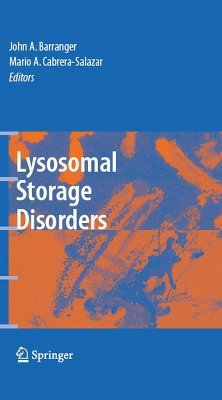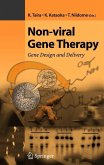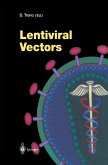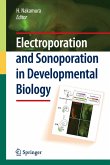Lysosomal Biology and Storage Disorders
John A. Barranger and Mario A. Cabrera-Salazar
The knowledge of lysosomal biology and the consequences of its dysfunction have increased dramatically in the past 60 years. Research of these disorders has moved from diseases with unknown etiology to disorders with clear and defined pathophysiology and some of them have benefited from the development of disease specific therapeutics. Lysosomal Biology and Storage Disorders describes the nature of the diseases, the historical evolution of the field and future perspectives for the treatment of these clinical entities.
Organized as a textbook, Lysosomal Biology and Storage Disorders describes the nature of lysosomal dysfunction, the synthesis and targeting of lysosomal enzymes and the implications of the targeting mechanisms for the development of new therapies. Disease specific chapters provide thorough reviews of the clinical features of lysosomal storage disorders, their molecular basis and the commercial or experimental therapeutic approaches sought in this area.
Lysosomal Biology and Storage Disorders will be attract to all researchers in biochemical and molecular genetics, enzyme therapy, gene transfer, and others concerned with the models of genetic disease.
This book is dedicated to patients affected by Lysosomal Storage Disorders, and especially to the National Gaucher Foundation (USA) and the Colombian Association of Patients with Lysosomal Storage Diseases (ACOPEL for its Spanish Acronym). Both organizations will share in the sales of this book.
About the Editors:
John A. Barranger, M.D., Ph.D. is a Professor in the departments of human genetics, molecular genetics and biochemistry, and pediatrics at the University of Pittsburgh School of Medicine.
He has also served as director of the Human Gene Therapy Applications Laboratory, the Center for the Study and Treatment of Jewish Genetic Diseases, and the Comprehensive Gaucher Disease Treatment Center in this institution
Mario A. Cabrera-Salazar, MD is a Staff Scientist at Genzyme Corporation in Framingham, MA. He is involved in the development of enzymatic and gene therapies for lysosomal storage disorders and for neurodegenerative diseases in the department of Genetic Disease Science.
John A. Barranger and Mario A. Cabrera-Salazar
The knowledge of lysosomal biology and the consequences of its dysfunction have increased dramatically in the past 60 years. Research of these disorders has moved from diseases with unknown etiology to disorders with clear and defined pathophysiology and some of them have benefited from the development of disease specific therapeutics. Lysosomal Biology and Storage Disorders describes the nature of the diseases, the historical evolution of the field and future perspectives for the treatment of these clinical entities.
Organized as a textbook, Lysosomal Biology and Storage Disorders describes the nature of lysosomal dysfunction, the synthesis and targeting of lysosomal enzymes and the implications of the targeting mechanisms for the development of new therapies. Disease specific chapters provide thorough reviews of the clinical features of lysosomal storage disorders, their molecular basis and the commercial or experimental therapeutic approaches sought in this area.
Lysosomal Biology and Storage Disorders will be attract to all researchers in biochemical and molecular genetics, enzyme therapy, gene transfer, and others concerned with the models of genetic disease.
This book is dedicated to patients affected by Lysosomal Storage Disorders, and especially to the National Gaucher Foundation (USA) and the Colombian Association of Patients with Lysosomal Storage Diseases (ACOPEL for its Spanish Acronym). Both organizations will share in the sales of this book.
About the Editors:
John A. Barranger, M.D., Ph.D. is a Professor in the departments of human genetics, molecular genetics and biochemistry, and pediatrics at the University of Pittsburgh School of Medicine.
He has also served as director of the Human Gene Therapy Applications Laboratory, the Center for the Study and Treatment of Jewish Genetic Diseases, and the Comprehensive Gaucher Disease Treatment Center in this institution
Mario A. Cabrera-Salazar, MD is a Staff Scientist at Genzyme Corporation in Framingham, MA. He is involved in the development of enzymatic and gene therapies for lysosomal storage disorders and for neurodegenerative diseases in the department of Genetic Disease Science.
Dieser Download kann aus rechtlichen Gründen nur mit Rechnungsadresse in A, B, BG, CY, CZ, D, DK, EW, E, FIN, F, GR, HR, H, IRL, I, LT, L, LR, M, NL, PL, P, R, S, SLO, SK ausgeliefert werden.
From the reviews:
"The authors have brought together an excellent group of contributors to provide an introduction to lysosomal storage disorders (LSDs). ... It is oriented to serve individuals working in the field of LSDs, but it also would provide a good base of knowledge for graduate students, medical residents, or clinical genetics physicians who wish to update their understanding of the lysosome pathology and function. ... With this unique book, the authors have provided a well thought out source of information on lysosomal disorders." (Luis F. Escobar, Doody's Review Service, July, 2009)
"The authors have brought together an excellent group of contributors to provide an introduction to lysosomal storage disorders (LSDs). ... It is oriented to serve individuals working in the field of LSDs, but it also would provide a good base of knowledge for graduate students, medical residents, or clinical genetics physicians who wish to update their understanding of the lysosome pathology and function. ... With this unique book, the authors have provided a well thought out source of information on lysosomal disorders." (Luis F. Escobar, Doody's Review Service, July, 2009)









